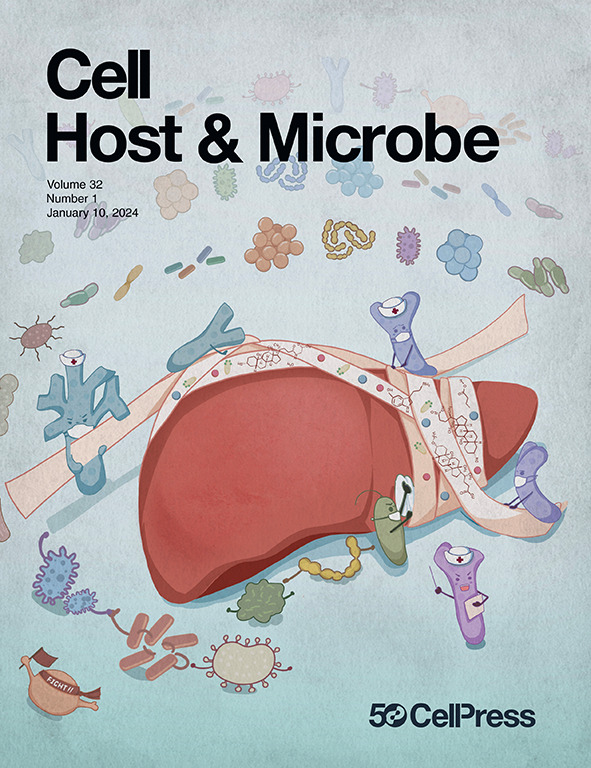植物受体样激酶在感知外来和宿主来源信号和塑造微生物组中的作用
IF 18.7
1区 医学
Q1 MICROBIOLOGY
引用次数: 0
摘要
微生物群为宿主提供多种益处,包括营养获取、耐受性和抗病能力。然而,植物通过协调内在和外在的线索来塑造微生物群落的机制仍然知之甚少。受体样激酶(receptor -样kinase, RLKs)是植物中最大的基因家族之一,是感知外源和内源信号的核心,包括病原体、共生生物和植物生理学。事实上,最近的证据已经确定了调控微生物组结构和功能的RLKs。这篇综述的重点是它们的数量和转导不同信号的能力如何使RLKs成为协调植物生理和免疫与微生物组的强有力的候选者。本文章由计算机程序翻译,如有差异,请以英文原文为准。
The role of plant receptor-like kinases in sensing extrinsic and host-derived signals and shaping the microbiome
Microbiota provide diverse benefits to their hosts, including nutrient acquisition, stress tolerance, and disease resistance. However, the mechanisms by which plants coordinate intrinsic and extrinsic cues to shape microbial communities remain poorly understood. Receptor-like kinases (RLKs), one of the largest gene families in plants, are central to the perception of both exogenous and endogenous signals, including pathogens, mutualists, and plant physiology. Indeed, recent evidence has identified RLKs that regulate microbiome structure and function. This minireview focuses on how their quantity and ability to transduce diverse signals make RLKs strong candidates to coordinate plant physiology and immunity with the microbiome.
求助全文
通过发布文献求助,成功后即可免费获取论文全文。
去求助
来源期刊

Cell host & microbe
生物-微生物学
CiteScore
45.10
自引率
1.70%
发文量
201
审稿时长
4-8 weeks
期刊介绍:
Cell Host & Microbe is a scientific journal that was launched in March 2007. The journal aims to provide a platform for scientists to exchange ideas and concepts related to the study of microbes and their interaction with host organisms at a molecular, cellular, and immune level. It publishes novel findings on a wide range of microorganisms including bacteria, fungi, parasites, and viruses. The journal focuses on the interface between the microbe and its host, whether the host is a vertebrate, invertebrate, or plant, and whether the microbe is pathogenic, non-pathogenic, or commensal. The integrated study of microbes and their interactions with each other, their host, and the cellular environment they inhabit is a unifying theme of the journal. The published work in Cell Host & Microbe is expected to be of exceptional significance within its field and also of interest to researchers in other areas. In addition to primary research articles, the journal features expert analysis, commentary, and reviews on current topics of interest in the field.
 求助内容:
求助内容: 应助结果提醒方式:
应助结果提醒方式:


